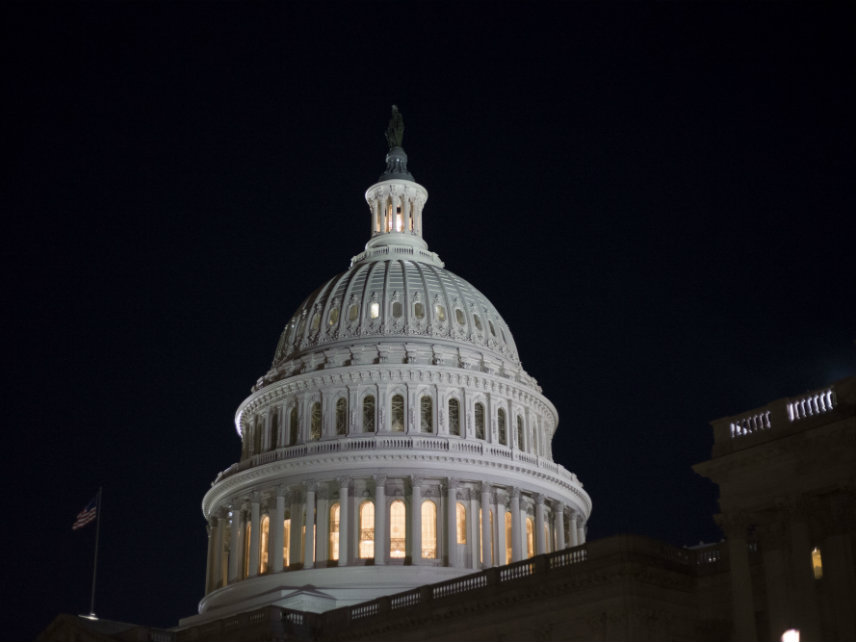Housing Lobbyist's Reason for Opposing Tax Reform Is What's Wrong with Washington
"By raising the standard deduction you put money in people's pockets, yes, but you're not encouraging them how to use the money."

Tax bills have now passed both the House and Senate, so lawmakers are now setting to the task of reconciling the two proposals. House Republicans are expected to vote Monday to proceed to a conference committee, which will be charged with hammering out the details of a plan that can pass both chambers.
Both bills are a mixed bag. The good news is that they'll cut the corporate tax rate from 35 percent to 20 percent, which will grow the economy and encourage investment; many Americans will also see a welcome reduction in their personal income taxes, though those cuts are set to expire after a decade. On the flipside, the tax plan will add about $1 trillion to the national debt, even after accounting for the economic growth it could unleash.
One positive part of the GOP tax plan is the doubling (or, in the Senate bill, nearly doubling) of the current standard deduction from $6,350 to at least $12,000. (The current deduction of $12,700 for married couples would increase to at least $24,000.) A higher standard deduction means all Americans get to keep a larger share of their income, tax-free, and it also helps to simplify the tax-filing process for some people who might currently itemize deductions but would choose not to do so if the standard deduction was higher.
But even something as straightforward as raising the standard deduction is facing opposition, Politico reports. Homebuilders and other housing lobbyists are worried—get this—that it lets individuals make their own decisions about how to use that extra un-taxed money.
"We're looking at the current draft plan as an assault," Jerry Howard, CEO of the National Association of Homebuilders, told Politico. "By raising the standard deduction you put money in people's pockets, yes, but you're not encouraging them how to use the money."
This represents more than just one tired lobbyist caught in an unexpected moment of candor. There's a whole worldview embedded in that cynical comment.
About a decade ago, Richard Thaler and Cass Sunstein coined the "nudge" theory: the idea that policy makers can influence behavior without explicitly mandating or prohibiting anything. Such "libertarian paternalism," as some have called it, leaves people free to make their own decisions but arranges incentives to direct choices. The federal tax code has long been full of such incentives, including the mortgage interest deduction that is so dear to groups like Howard's lobby. It encourages you, as Howard puts it, in "how to use the money" because you get a tax break for choosing to buy a home instead of making any other choice.
In some cases, this may work rather innocently to help people save more for retirement or to increase organ donations. It also helps make bathrooms less messy. But even when the theory is applied in what seem to be useful ways, there's no practical, objective way to determine what's in another person's best interest. There are, however, plenty of ways a lobbyist can twist the tax code to fit his lobby's interest.


Show Comments (111)